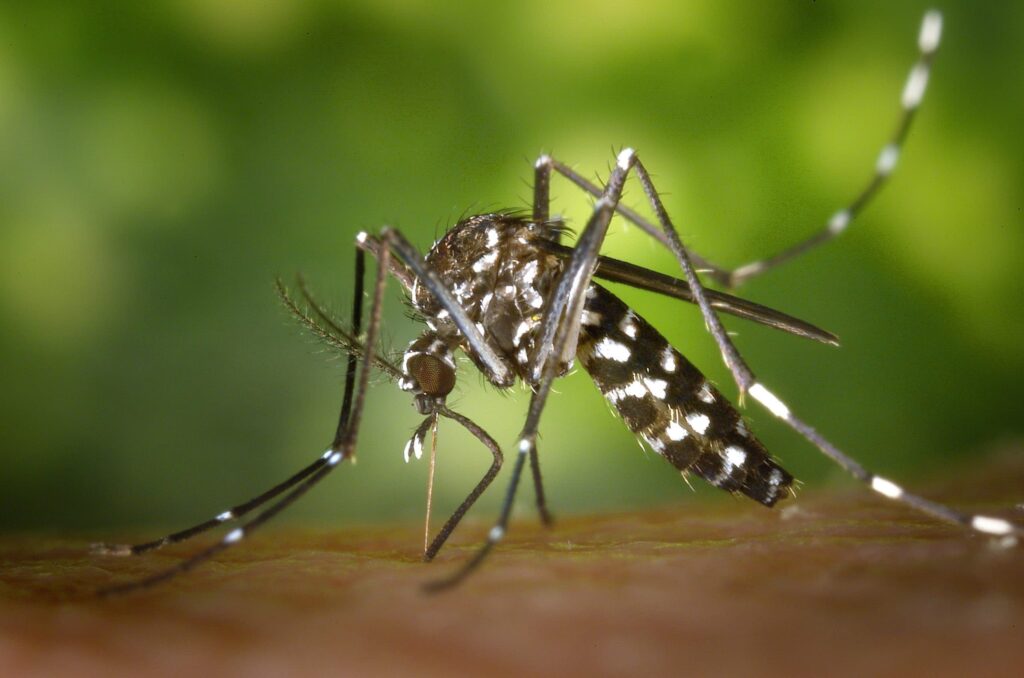More than 5.900 adult mosquitoes were captured last year in Portugal and none of the species Aedes albopictus, which can transmit dengue or zika, was contaminated, according to data from the surveillance network.
According to the latest report by the National Vector Surveillance Network (REVIVE), in 2022, 5.904 adult mosquitoes were captured in the traps, 34.262 mosquito larvae and pupae were collected and 35.251 mosquito eggs were counted.
“Last year, 5.904 adults were collected, of these adult mosquitoes, the Aedes albopictus are all tested for their viral activity, to find out if they are infected or not”, the coordinator of the National Vector Surveillance Network (REVIVE), Maria João Alves, told Lusa, adding that, until now, no “agent pathogenic to humans”.
The document made available by the Doctor Ricardo Jorge National Institute of Health (INSA) states that, in the last decade, “a considerable increase in the spread of the Asian tiger mosquito” has been observed(Aedes albopictus), which can transmit dengue, zika and chikungunya and which was detected for the first time in Portugal in 2017 (Penafiel). This mosquito is “in continuous expansion in the European region”.
He explains that collections took place between May and October, in mainland Portugal, and from January to December, in the Autonomous Region of Madeira, at various points of entry, including six airports, two airfields, 14 ports and five other points (borders, industries).
Surveillance at airports was carried out in Lisbon, Beja, Faro, Funchal, Porto and Porto Santo and at Cascais and Évora airfields. In ports, it covered the structures of Aveiro, Caniçal, Faro, Figueira da Foz, Funchal, Leixões, Lisbon, Lisbon Naval Base, Portimão, Porto Santo, Setúbal, Sines, Viana do Castelo and Vila Real de Santo António.
Surveillance at other entry points was carried out in border areas in the Algarve and Alentejo and at retreading companies in the Lisbon and Tagus Valley region and in the North.
The authors point out that “invading mosquitoes in certain geographical locations can represent a threat to Public Health” and point out that species of the aedes genus “are the most frequent and important”.
Five species of this genus are already “established and proliferating in Europe”, two of them in mainland Portugal (Aedes albopictus) and in Madeira (Aedes aegypti).
Both invasive alien species are under particular monitoring: the Aedes aegypti has been present in Madeira since 2004 and was responsible for the only dengue outbreak in the region, in 2012, with more than 2000 cases, and the Aedes albopictus has already been identified in the North (2017), Algarve (2017) and Alentejo (2022) regions.
Available data indicate that, between 2011 and 2021, 498.596 mosquitoes were captured (97.553 eggs, 287.791 immatures and 113.252 adults).
The REVIVE teams are made up of elements from the Regional Health Administrations, the Regional Health Directorate of Madeira and the National Institute of Health Doctor Ricardo Jorge (INSA), which is equivalent to more than 300 technicians annually.
Mosquitoes represent the most important group of arthropods from a medical and veterinary point of view because they are vectors of important diseases, including malaria, dengue, zika, chikungunya, yellow fever, among others.



















Comments